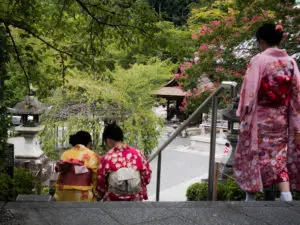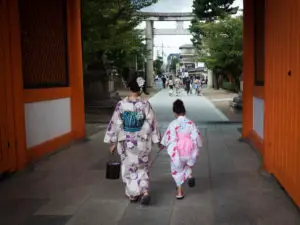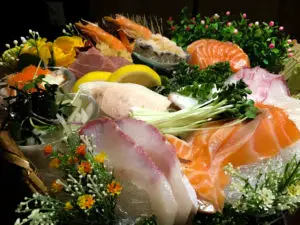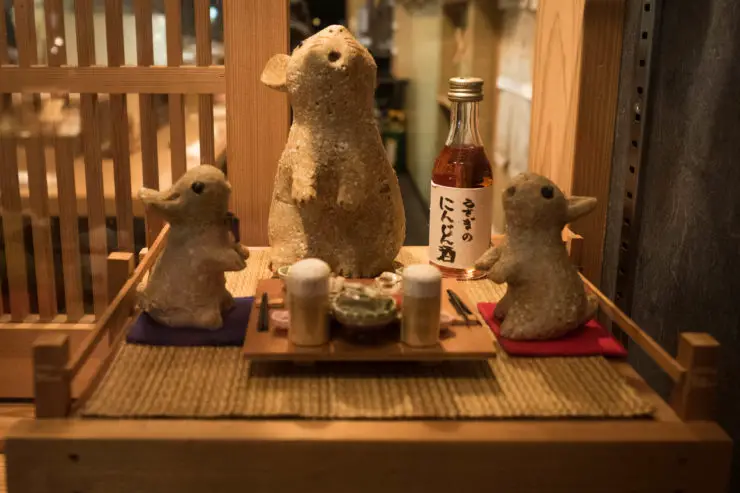As an Amazon Associate I earn from qualifying purchases. Please read the disclaimer for more info.
Being a first time visitor to Japan can be a daunting prospect. There seems to be a never ending flow of information when planning a trip to Japan.
And there are many questions to answer. Where to travel in Japan, what to see in Japan, what to eat in Japan, and what is a Japan must see?
And what’s more, you’ve heard things are a little bit different.
Japan is a fascinating country to visit, and with a little knowledge before traveling to Japan for the first time, you can hit the ground running.
So whether you’re visiting Japanese vacation, or gearing up for the Tokyo 2020 Olympics, here are our top Japan travel tips.
29 Top Tips for the First Time Visitor to Japan
1. Buy a Japan Rail Pass
When planning on how to get around Japan, even for a few longer trips, a Japan Rail Pass is essential. Not only is it cost effective, it will make your Japan travel very convenient as well.
A JR Pass can be purchased online before arriving in the country, or for a short trial period, purchased at airports upon arrival when you fly to Japan. The Japan Rail Pass price gets cheaper the longer the timeframe.
There are many options to save money on the Japan Rail Pass price when purchasing a JR Pass package in advance.
2. Get your hands on a Suica or Pasmo card
Even if not traveling to Japan for the first time, getting either a Pasmo or Suica card will make your Japan trip super convenient.
Once you load Yen on the card, they can be used to get around the train subways, buses, pay for taxis, vending machines, and used in convenience stores.
This one of the best things to know when traveling to Japan.
I can’t overstate how convenient having one of these cards is. Just get one.
3. Rent a portable WiFi Japan device
WiFi is not that readily available in Japan, with sporadic coverage in cafés and restaurants. Therefore, one of the essential tips for visiting Japan is to rent a portable WiFi device for your trip.
We found it super useful and the most convenient, and cheapest, way to rent a portable WiFi device is to order online before you arrive in Japan (allow a few days at least). The device can then be picked up (and later dropped off) at the airport.
4. You don’t need to bow in Japan.
Bowing is part of Japanese culture, and although this might cause some controversy (I’m not sure where), you will survive your time in Japan as a tourist without bowing.
You see, bowing is a complicated process, and the Japanese don’t expect tourists to know the etiquette behind it, especially if it’s your first time visiting Japan.
However, if you are planning an extended stay in Japan, want to learn Japanese etiquette, or Japanese business etiquette, then there is plenty of online help for you.
5. Carry a plastic bag with you.
Carrying a plastic bag in Japan is a better tip for a first time visitor to Japan than you think. There are actually very few rubbish bins on the streets of Japan, and disposing of rubbish is not as easy as you would expect. Therefore, carrying a plastic bag with you will allow you to store your rubbish without soiling your favourite day bag.
Tip 5.1 – there are always rubbish bins near vending machines, as it seems most folk buy their poison of choice from these machines, and drink or eat it on the spot. And tip 5.2 – those cold “coffee in a can” from vending machines are actually great.
Hungry? Read our 20 Delicious Japanese Food Experiences before your trip.
6. Tipping in Japan
Do you tip in Japan? Actually, it is generally one of the things not to do in Japan.
Not only is it not customary to tip in Japan, it could cause offense to do so.
Quite often, in countries where tipping is accepted, small change (whether coins or notes) is left behind in cafes, or given to taxi drivers, etc. Here, you take the change with you, meaning no tipping in Japan.
Which brings us to the next tip.
7. Bring a small coin purse.
Or as I do, have a wallet with a coin pouch.
When it was my first time in Japan, I was surprised at the amount of coins I accumulated, with the largest value coin being 500 Yen (around $5).
So, you will need a means of carrying these coins with you. And why? Well…..
8. Japanese Vending Machines
With the prevalence of vending machines in Japan, carrying coins with you is simply good practice. You can buy all sorts of things from Japanese vending machines, including the usual food, drinks, and toys, as well as ordering meals at some restaurants, especially ramen restaurants.
9. Smoking in Japan. You can’t smoke anywhere you like.
For smokers, thinking about what not to do in Japan , there is some good news and some bad news.
The good news: Smoking is still allowed in some cafes and restaurants, with smoking sections put aside. Or is that non-smoking sections put aside. You get the picture.
The bad news: Those dying for a gasper can’t smoke anywhere they like. There are designated smoking areas on the streets, with many around train stations. There are also fines for smoking outside of these designated areas. So be sure you can light up, before you light up.
10. Keep your voice down, please.
For a first time visitor to Japan, it can be a surprisingly quiet country, with little noise on trains, in restaurants, or even on the streets. Of course, that changes once you step inside an izakaya or a gaming arcade, but generally Japan is a great place for some peace and quiet.


11. Convenience stores, one of the best places to visit in Japan?
I was amazed, on my first trip to Japan, at the range of food and drinks, and other goods, available in convenience stores such as Family Mart and 7-Eleven.
And if you are travelling to Japan on a budget, you can buy tasty ready meals such as noodles (there is hot water and microwaves available for heating), edible sandwiches that are actually fresh, quality bakery items, and all types of confectionary.
Convenience stores are a great place to work through the Japanese Kit Kat flavors, including the sake flavoured kit kat.
ATMs are usually on hand, which is helpful, as getting access to much needed cash in Japan is not easy.
And every store has a very keenly priced alcohol section, so I hear.
12. Is Japan safe?
It’s safe. I never felt for my safety in Japan, uneasy in any situation, even late at night. In fact, the crime rate in Japan is extremely low.
You can even leave a bag sitting by a public water fountain for an hour, that hundreds of people will pass, and go back and it hasn’t been touched. Apparently.
Still hungry? Read about 10 Tasty Street Food Snacks from Tokyo’s Fabulous Tsukiji Market
13. Cash in Japan is King
Another key tip for the first time visitor to Japan is to carry plenty of cash, a little more than you think you may need.
I was surprised at the many places that didn’t take either a credit card or a smart card, or even my Blockbuster card.
14. Tap water in Japan clean to drink.
Tap water is fine to drink in Japan. Which is great, as it means being able to refill a portable water bottle during the day for free, and saving the cash to buy more Kit Kats. Tip 14.1 Try the green tea Kit Kat.
15. Carry a portable phone charger with you.
Given the few signs and directions that are in English, having a phone run out of power while out and about could turn into mini-disaster. I found having access to Google Maps, and the football results, essential daily travel tools.
16. Dress modestly.
It seems to be that the general Japanese dress code is modest, but smart, even when dressing casually.
And I am not trying to be a crotchety old man, but I was amazed at the insensitive dressing of some of the women tourists who would walk around with their ass-cheeks literally hanging out of their tight shorts. In Japan! What’s that all about? Anyway….
17. Learn a few key phrases in Japanese.
For a first time visitor to Japan, learning a few basic phrases are some of the best things to know before going to Japan. Japanese will help a lot in daily exchanges. Even just learning how to say thank you very much (arigatou gozaimasu – pronounced ah-ree-gah-toh goh-zah-ee-mas) will go a long way. And while I’m on it, saying thank you in Japanese is not straight forward, so I personally went with the more formal arigatou gozaimasu in all circumstances.

A plate of sashimi – a reason to say arigatou gozaimasu
18. Take off your shoes, please.
It is quite common to take your shoes off when entering any number of places, such as houses, some restaurants and cafes, hotels, and even cat cafés. Wearing easy to slip off shoes will make your life that little bit easier.
19. Always stand to one side when riding an elevator.
Generally, when riding elevators, stand to the left so that others can pass on the right. Unless, like in Osaka, you should stand to the right. Or, better still, just stand on the side everyone else is. Unless you are the only person on the elevator. Then panic.
20. Up and down the stairs.
When entering and leaving train stations by the stairs, there will generally be arrows painted indicating where to walk up or down. This makes a huge difference during busy times, and stops silly tourists (like me) carrying a large bag in the wrong direction into the sea of human traffic.
21. Be sure to cover your tattoos.
If you are sporting ink, and plan on having a swim in a public pool, or visiting an onsen, then you may be refused entry. Do your best to cover up.
22. Slurp your noodles.
When enjoying that bowl of ramen, slurp your noodles, the louder the better, as it shows you are appreciating the food. That being said, apologies to any Japanese chefs who thought I wasn’t enjoying your noodles, as I couldn’t quite bring myself to slurp loudly, especially in the quiet environs of many Japanese restaurants.

Don’t forget to slurp your noodles
23. Mind the taxi door.
In most Japanese taxis, the the driver will trigger the door to open and close automatically. Therefore, a good tip for the first time visitor to Japan is to be careful not to have any bags, or limbs for that matter, hanging outside the doors for no reason.
24. Don’t use your mobile phones on the trains.
The public transport system, despite the amount of people that ride it each day, is remarkably quiet. And on the trains between cities, it is even quieter, with announcements made to turn your mobile phones to silent. Therefore, if you really need to play angry birds, turn the sound off.
25. Clean up after yourself.
At cafes and casual restaurants, such as a Shokudo, there will often be places for you to place your dirty dishes. And if there is a wet towel at the table, a quick wipe down is appreciated and/or expected as well.
26. Carry your hotel’s business card with you.
And make sure the address is in Japanese as well. This is a good tip whichever country you travel to, but very helpful in Japan where getting help to find your hotel may not be as straight forward with just an address in English. Another option, is to take a photo of your hotel’s details.
27. The Japan Taxi Fare isn’t cheap.
Taxis are an expensive form of transport in Japan. And so is Uber Japan. Luckily, public transportation in Japan is very convenient, so a little planning will ensure taxi use is minimal. For example, when you visit Japan, booking a hotels near Tokyo stations will help enormously.
28. Blowing your nose in public, a Japanese taboo?
Blowing your nose in public is considered rude in Japan. It is more polite to just discreetly wipe your nose and quietly sniff to keep things at bay.
29. Take wet wipes with you.
A lot of public bathrooms don’t have soap or paper towels, and many restaurants don’t have napkins at the table, so it is handy to take a packet of wet wipes with you wherever you go.
Read our suggested 14 day itinerary for first time visitors to Japan
Hopefully these tips will help you answer some of your questions on how to visit Japan, whether you have one week in Japan, or longer such as 14 days in Japan.
There are certainly many things to know before travelling to Japan, so add these to your Japanese planner and make your life a little easier as a first time visitor to Japan.


Very enjoyable and useful. I also got a few giggles out of it!
Thanks Stephen – happy to hear that you found it useful.
nice post!